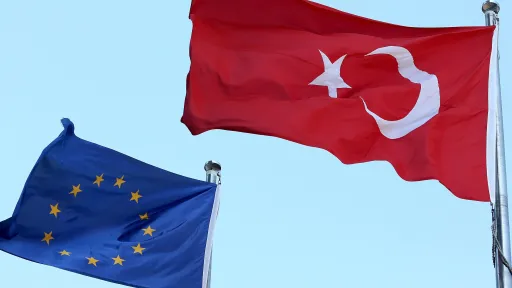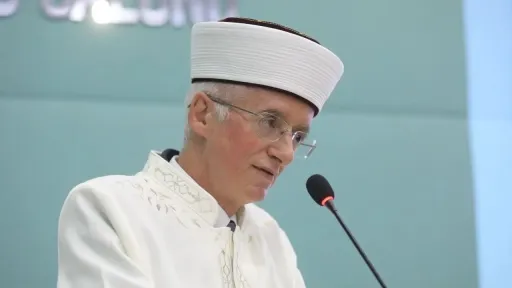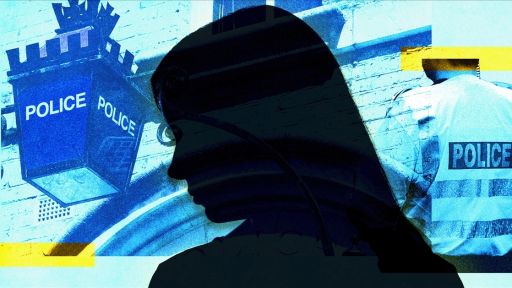A Turning Point: The September 11 Attacks

The September 11, 2001 attacks were a landmark event not only for the United States but for the entire world, marking one of the most traumatic events of the century.
The targets of the attacks, carried out by the terrorist organization al-Qaeda, were key symbols of American economic and military power.
The attackers planned to hijack four passenger planes and carry out suicide attacks. Unfortunately, a large part of this plan was executed.
Four planes flying on the East Coast of the United States were hijacked simultaneously by a small team of connected individuals.
The attackers then used these planes like guided missiles to crash into iconic buildings in New York and Washington.
Two of the planes hit the Twin Towers of the World Trade Center in New York.
At 08:46 AM, the first plane crashed into the North Tower, followed by the second plane crashing into the South Tower at 09:03 AM.
As the buildings caught fire, people trapped on the upper floors were left stranded. The city was shrouded in a thick layer of smoke.
In less than two hours, the 110-story skyscrapers collapsed, creating a massive dust cloud.
At 09:37 AM, the third plane crashed into the western part of the Pentagon, the headquarters of the U.S. Department of Defense, near Washington, DC.
The fourth plane, with passengers intervening, crashed into an open field in Pennsylvania at 10:03 AM.
It was believed that if not for the intervention, the plane hijackers intended to target the Capitol building in the capital.
In the attacks, a total of 2,977 people lost their lives, excluding the 19 hijackers.
On the four hijacked planes, a total of 246 passengers and crew members were killed.
At the World Trade Center in New York, 2,606 people died either on the day of the attack or later due to injuries sustained.
At the Pentagon, the death toll was 125.
The youngest victim was two-year-old Christine Lee Hanson, who was on the plane with her mother Sue and father Peter.
When the first plane crashed, there were an estimated 17,400 people in the Twin Towers. No one survived in the area where the plane hit the North Tower, but 18 people managed to escape from the floors above the crash site in the South Tower.
The victims included citizens from 77 different countries. Among them, 441 members of New York City’s emergency response teams, mostly firefighters, lost their lives.
Thousands were injured or developed illnesses related to the attack, such as those who worked in toxic debris.
The world entered a new era following that day.
The attackers who carried out the September 11 terrorist attacks were members of the al-Qaeda terrorist organization.
It was determined that these attacks were planned in Afghanistan and led by al-Qaeda's leader, Osama bin Laden. Al-Qaeda had accused the U.S. and its allies of interfering in conflicts in the Islamic world.
The 19 terrorists responsible for the attacks were divided into four different teams. Each of the three teams had five members, while the fourth team, which was on the plane that crashed in Pennsylvania, consisted of four members.
What was the U.S. response?
Afghanistan was believed to be hiding Osama bin Laden and other al-Qaeda leaders.
In response to the September 11 attacks, the U.S., under President George W. Bush and with the support of coalition forces, invaded Afghanistan in October 2001.
One of the longest military operations in history, named "Operation Enduring Freedom," was launched.
U.S. forces eventually located bin Laden in neighboring Pakistan in 2011.
Bin Laden was killed on May 2, 2011, in a covert operation by U.S. special forces at a compound in Abbottabad, Pakistan, where he was hiding with his family.
As a result of the 20-year U.S. occupation of Afghanistan, approximately 172,000 people died, including nearly 2,500 American soldiers.
Washington's focus was not solely on Afghanistan.
Khalid Sheikh Mohammed, alleged planner of the September 11 attacks, was captured in Pakistan in 2003. Since then, he has been held at Guantanamo Bay under U.S. custody and is still awaiting trial.
Although its leaders have been captured, al-Qaeda continues to exist, especially with a strong presence in sub-Saharan Africa and still having members in Afghanistan.
U.S. troops withdrew from Afghanistan on August 30, 2021, and since then, the Taliban has been in power.
U.S. Invasion of Iraq
Following the invasion of Afghanistan, the U.S. launched a military operation against Iraq. The primary justifications for this operation were claims that then-Iraqi leader Saddam Hussein supported al-Qaeda and that Iraq possessed chemical weapons. Without waiting for a decision from the UN Security Council, the U.S. conducted the operation in Iraq on March 20, 2003.
However, this operation resulted in the deaths of hundreds of thousands of Iraqi civilians, cost billions of dollars, and contributed to the rise of the terrorist organization ISIS.
The Iraq invasion led to increased sectarian conflicts and ethnic tensions, making Iraq one of the most complex issues in the Middle East. The country struggled with efforts to achieve long-term stability and security.
The September 11 attacks heightened security concerns in the U.S., leaving behind endless internal conflicts and unrest in the invaded countries.
Increased Islamophobia Post-September 11
The September 11 attacks affected not only Muslims in the U.S. but also Muslims worldwide. The Islamophobia that emerged after these attacks became a significant issue for Muslims. Osama bin Laden attempted to legitimize these attacks by claiming that the U.S. was killing Muslims and supporting Israel.
In particular, Islamophobia and anti-Muslim sentiment increased in the U.S. and other Western countries after September 11. This period saw a significant rise in hate crimes against Muslims. Moreover, many news reports and productions about the September 11 events tended to portray Muslims as terrorists. Politicians' anti-Muslim rhetoric contributed to the strengthening of such prejudices.
Islamophobia remains a reality for many Muslims not only after September 11 but also today. Reducing such prejudices and fostering a more understanding coexistence among people requires significant efforts in education, awareness, and community initiatives.
TRTHABER







